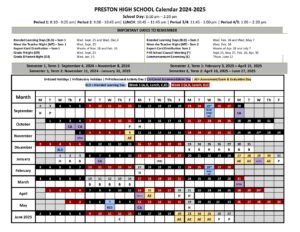Your brain is what controls learning. if you want to be a good student, you need to care for it.
The Basics of Brain Development
Although we are born with the entire brain in our heads, the part that babies make the most of is the Cerebellum. This part of the brain is known as the old or “Primitive brain”. It is consumed with survival — a good thing for a baby to be focused on, as a baby has no way to survive without the help of its parents.
By the time the baby becomes a pre-schooler, the brain has grown 4 times its original size. The child is developing an awareness of others, a sense that others might feel pain or sorrow or joy. The child is using the amygdala, the part of the midbrain that controls emotion. The child is now concerned with the need to be with others, to form connections and groups and to care about what those group members think. This explains the adolescent who won’t listen to his parents, but will do what his friends tell him to do!
By late adolescence or early adulthood, the young adult has moved into the new brain, or frontal lobe. This part of the brain, housing the pre-frontal cortex, controls reasoning, discernment and problem solving. This is the brain that the adult will have until death. You can grow your intelligence, but you cannot grow your brain further, so it is worth looking after it.
Keeping the Brain Healthy
The brain works much like an electrical circuit. Information is passed from neuron to neuron by the firing or flashing of synapses. Several things make this process successful:
– hydration. The brain needs water to carry the synapses, and actually shrinks when dehydrated. If you find yourself feeling headachy, try drinking water.
– eating well. The axons are coated in a fatty myelin sheath, which helps them fire faster and more consistently. Myelination — the process of growing this sheath — starts with birth at the cerebullum, but doesn’t finish in the frontal cortex until late adolescence. Food rich in Omega 3s, like salmon and olive oil, are good choices to develop myelin sheaths on axons. Other foods provide zinc, iron, choline, anthocyanines and B vitamins — all nutrients the brain uses to keep healthy and to process efficiently — so eating a balanced diet is essential.
– adequate sleep. Important brain processing happens when we sleep: our brains take information from short term memory and file it into long term memory. Topics studied in school need to go into long term memory to be accessible during testing. Teenagers require a MINIMUM of eight hours a night, but nine hours is better. And, it must be quality sleep — having phones buzzing at two am is a no-no! Insist that all electronics be out of the room so that your teenager isn’t disturbed by others, or tempted to surf the net way into the night.
– regular exercise. We all know the benefits of exercise — better sleep, more energy, weight management, and now — a better functioning brain! Increased circulation carries oxygen to the brain, allowing for increased neuron activity.
Brain Exercises
You brain has plasticity, which means that it can grow, relearn and learn new skills at any stage of development. Your brain power is not fixed!! You can get smarter!! Card games and puzzles like crosswords and Sudokus are great for teaching vocabulary, arithmetic and pattern recognition. Try travel games, like adding license plates or memory games like Concentration to the mix. Anything where you use brain power, not computer power, will be beneficial.
There’s lots of information about the brain on the Internet. Here is just one of the many YouTube videos available:
Here are some websites you can search through to find out information about your brain, how you process information, and play some good-for-you games.
Basic Brain Information and Definitions:
http://maui.net/~jms/brainuse.html
The Triune Brain:
http://www.buffalostate.edu/orgs/bcp/brainbasics/triune.html
Brain Hemisphere Dominance:
http://www.ipn.at/ipn.asp?BHX
http://www.web-us.com/brain/braindominance.htm
http://similarminds.com/brain.html
Phys Ed for the Brain:
http://www.brainstorming.co.uk/puzzles/lateralthinkingpuzzles.html
http://www.gamesforthebrain.com/
http://www.funbrain.com/
http://www.sharpbrains.com/teasers/
http://www.prevention.com/cda/categorypage.do?
channel=health&category=brain.fitness&topic=brain.games
Keeping Your Brain Healthy:
http://www.newscientist.com/article/dn8449-violent-video-games-alter-brainsresponse-to-violence.html
http://www.wired.com/medtech/health/news/2007/09/bci_games
http://www.medicine.indiana.edu/news_releases/archive_02/violent_games02.html
http://seattletimes.nwsource.com/html/living/2003554106_liztaylor05.html
http://www.prevention.com/cda/article/get-your-brain-in-the-fastlane/
b02d541954585110VgnVCM10000013281eac____/health/brain.fitness














